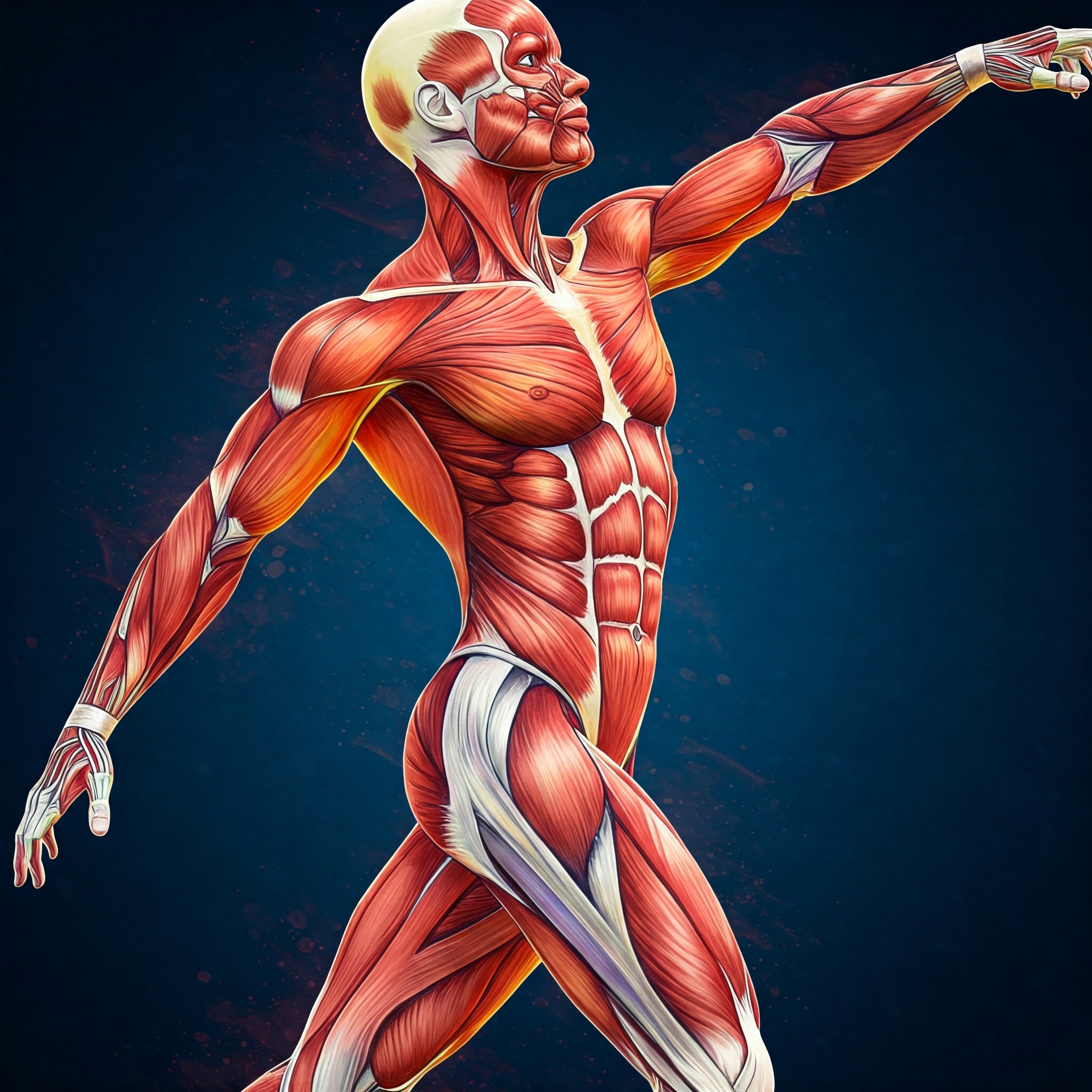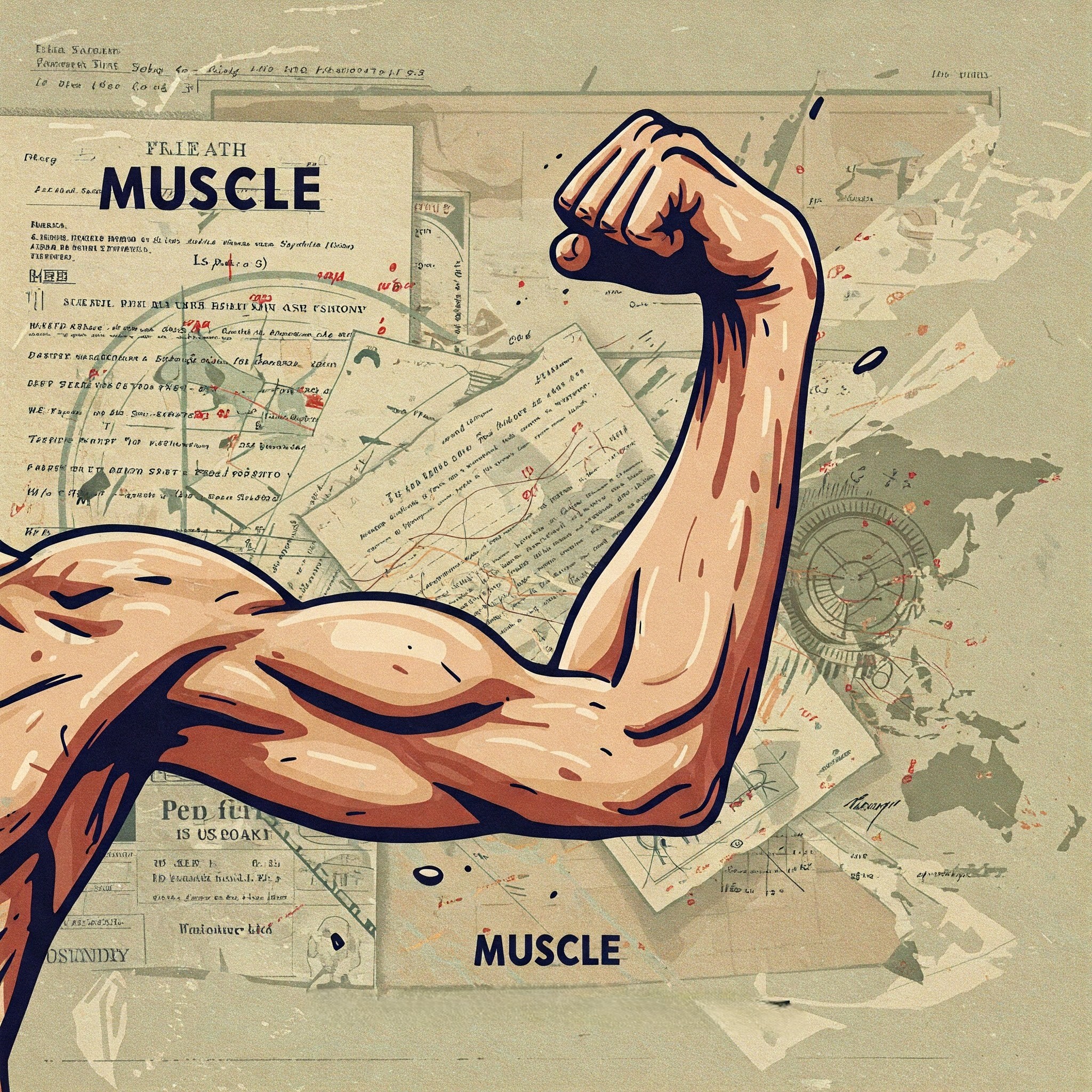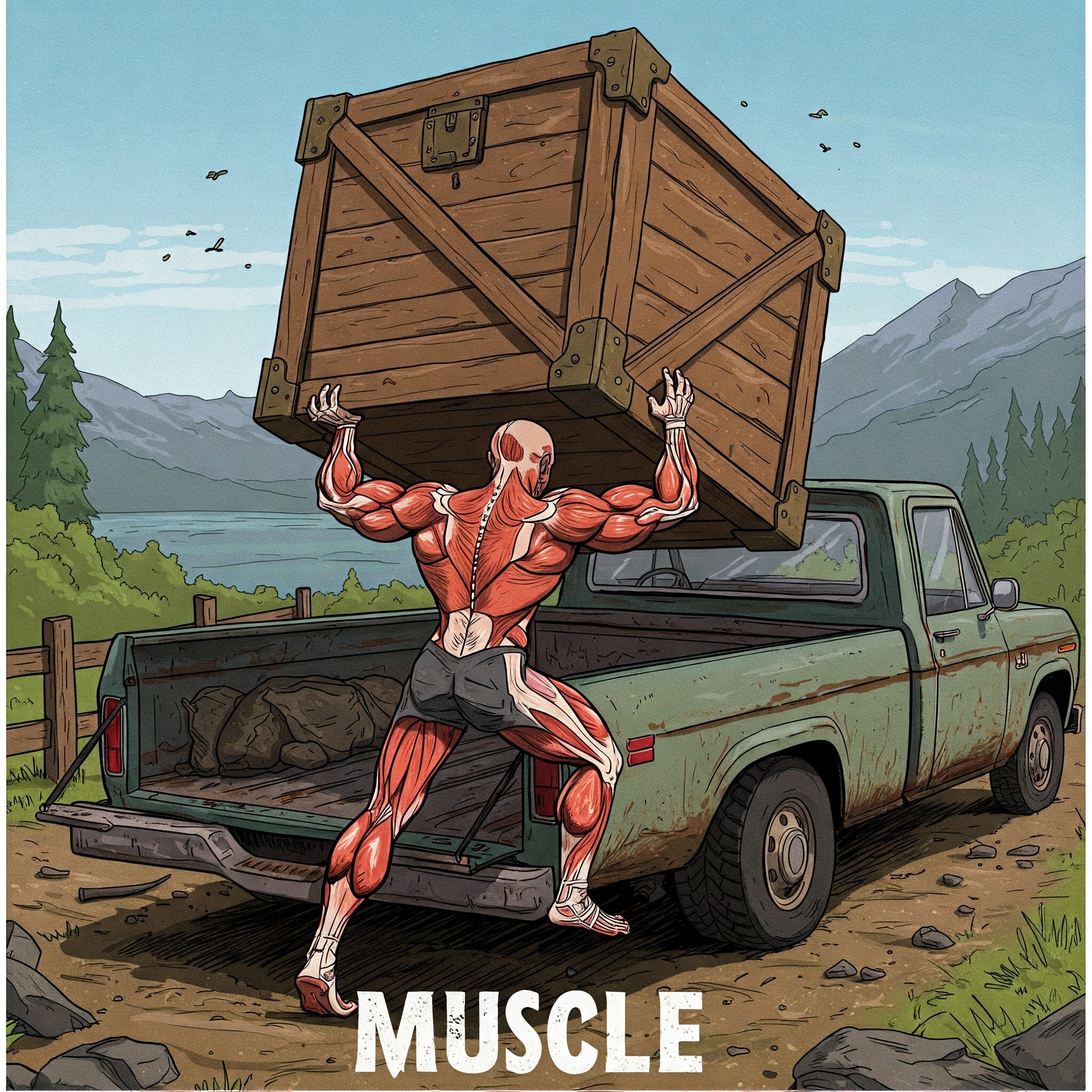Muscle
Definition
Muscle is a noun and verb referring to a band or bundle of fibrous tissue that has the ability to contract, producing movement or maintaining position (noun), or to move or force something by strength (verb).
Parts of Speech
- Noun
- Verb
Pronunciation
American English
- IPA Pronunciation: /ˈmʌs.əl/, /ˈmʌs.l̩/
- Respelling: MUS-uhl
British English
- IPA Pronunciation: /ˈmʌs.l̩/
- Respelling: MUS-ul
Etymology
The word "muscle" originates from the Latin "musculus," meaning "little mouse," derived from "mus" (mouse). The term was so named because of the shape and movement of muscles under the skin, resembling a mouse.
Derivatives
- Muscular (adjective)
- Musculature (noun)
- Musclebound (adjective)
- Muscling (verb form)
- Myomuscular (adjective)
Synonyms
- Strength
- Power
- Tissue
Antonyms
- Weakness
- Fragility
- None
Usage
The term "muscle" is widely used in anatomy, physiology, and everyday speech. For example, "He injured a muscle while exercising" (literal) or "The company muscled its way into the market" (figurative).
Related Terms
- Myology: The study of muscles.
- Fibers: The structural components of muscle tissue.
- Tendon: The connective tissue linking muscles to bones.
Detailed Definitions
Noun
- A band or bundle of fibrous tissue: Responsible for movement and maintaining posture in living organisms.
- Example: "The human body has over 600 muscles."
- Strength or power: Used figuratively to describe physical or influential force.
- Example: "The new legislation lacked political muscle."
Verb
- To move or force something using strength: Refers to the use of physical power.
- Example: "He muscled the heavy box onto the truck."
- To assert or achieve dominance through force: Refers to figurative use in social or competitive contexts.
- Example: "The company muscled its competitors out of the market."
muscle



🇨🇳 Mandarin
- 肌肉 (jīròu) - for the meaning of bodily tissue
- IPA Pronunciation: /t͡ɕi˥˩ ʐoʊ˧˥/
- Respelling: jee-row
🇮🇳 Hindi
- मांसपेशी (mānspeśī) - for the meaning of bodily tissue
- IPA Pronunciation: /mɑːnspeːʃiː/
- Respelling: maans-peshi
🇪🇸 Spanish
- músculo - for the meaning of bodily tissue
- IPA Pronunciation: /ˈmus.ku.lo/
- Respelling: moos-koo-loh
🇫🇷 French
- muscle - for the meaning of bodily tissue
- IPA Pronunciation: /myskl/
- Respelling: myskl
🇸🇦 Modern Standard Arabic
- عضلة (adalah) - for the meaning of bodily tissue
- IPA Pronunciation: /ʕadʕlah/
- Respelling: aad-lah
🇧🇩 Bengali
- পেশী (pēśī) - for the meaning of bodily tissue
- IPA Pronunciation: /peʃi/
- Respelling: pe-shi
🇷🇺 Russian
- мышца (myshca) - for the meaning of bodily tissue
- IPA Pronunciation: /ˈmɨɕtsə/
- Respelling: mi-sh-tsa
🇵🇹 Portuguese
- músculo - for the meaning of bodily tissue
- IPA Pronunciation: /ˈmuʃ.ku.lu/
- Respelling: moosh-koo-loo
🇮🇩 Indonesian
- otot - for the meaning of bodily tissue
- IPA Pronunciation: /ˈotot/
- Respelling: oh-tot
🇩🇪 German
- Muskel - for the meaning of bodily tissue
- IPA Pronunciation: /ˈmʊskl̩/
- Respelling: mus-kel
🇯🇵 Japanese
- 筋肉 (kinniku) - for the meaning of bodily tissue
- IPA Pronunciation: /kʲinnikɯ̟ᵝ/
- Respelling: kin-ni-ku
🇻🇳 Vietnamese
- cơ bắp - for the meaning of bodily tissue
- IPA Pronunciation: /kɔ˧ˀ˦ bɐk̚˦ˀ˥/
- Respelling: koh-bak
🇰🇷 Korean
- 근육 (geun-yuk) - for the meaning of bodily tissue
- IPA Pronunciation: /ɡɯn.juk̚/
- Respelling: geun-yuk
🇹🇷 Turkish
- kas - for the meaning of bodily tissue
- IPA Pronunciation: /kɑs/
- Respelling: kas
🇵🇰 Urdu
- عضلہ (azla) - for the meaning of bodily tissue
- IPA Pronunciation: /ʔuðːla/
- Respelling: udh-la





